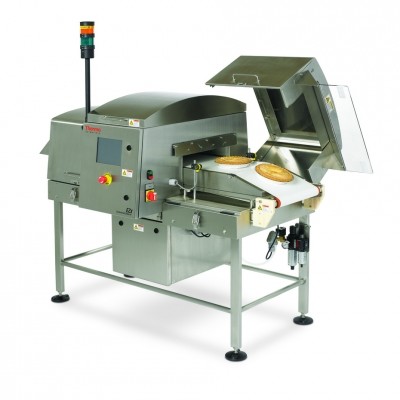Food safety allergen thresholds by 2014: Unilever

The thresholds are based on research into allergens and the development of a risk management tool, which originated in Australia and has subsequently been adopted by experts around the world.
The only barrier now to introducing thresholds in Europe is winning the approval of the European Food Safety Authority (EFSA), said René Crevel, science leader for allergy and immunology at Unilever.
EFSA currently has a mandate to review food allergies and was supposed to complete this work by the end of this year. Although that date is likely to slip, said Crevel, he told FoodManufacture.co.uk: “If [EFSA] looks favourably on the particular [threshold] values and data we could have a quasi-regulatory set of levels.”
Main challenge
Crevel added: “We are at the point where we have got a lot of data now. There are values that we can work to … the main challenge is persuading risk managers and regulators to have confidence that we do have enough data to do something and agreeing a set of levels.
“Ultimately what we need is a set of values that are agreed across industry and to which everyone in the supply chain can work. Optimistically, I think we could get something within a couple of years.”
The thresholds were developed by an international expert panel convened by the Australian Allergen Bureau as part of the overhaul of its Voluntary Incidental Trace Allergen Labelling (Vital) System, said Crevel.
He also sits on a specialist food allergy taskforce within the International Life Sciences Institute (ILSI).
Sue Hattersley, head of the Food standard Agency’s Food Allergy Branch, is also a member of ILSI’s expert group.
Crevel was speaking following a presentation he gave at a breakfast meeting held on April 17 organised by the Society of Food Hygiene and Technology (SOFHT) on allergen controls and thresholds. The event was organised to outline the measures many manufacturers could use to protect allergic consumers from exposure to undeclared allergens.
The Australian studies followed the €14M EU-funded EuroPrevall research project, which began in 2005 to look at the prevalence and thresholds for allergenic responses across Europe.
EuroPrevall investigated the ways people in different countries reacted to different allergens. Its results will reinforce the Australian work, said Crevel.
The food industry has been calling for allergen thresholds for a number of years to enable it to avoid using ‘may contain’ due diligence claims on packs. These have been widely criticised for being of no use to allergy suffers.
Mislabelled products
With a growing incidence of food allergies and rising numbers of product recalls associated with the presence of allergens – many related to mislabelled products – the food industry is looking for greater certainty in what it should do.
Allergy thresholds have also become increasingly important as ‘free-from’ foods have proliferated. Improved laboratory detection capabilities mean that it is now more difficult to guarantee a ‘zero presence’ of allergens during production.
So manufacturers want to know the minimum doses that can elicit a reaction in order to set maximum safe levels to work to.
At the same SOFHT meeting, Barbara Hirst, laboratory manager for DNA and protein at Reading Scientific Services (RSSL), described allergen risk-based assessment measures that companies could adopt. This is essential, given the absence of regulatory guidance on the management of allergen cross-contamination.
The measures described took account of recent advances in allergen knowledge regarding the potency, prevalence and severity of different allergens.
















